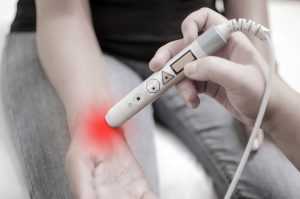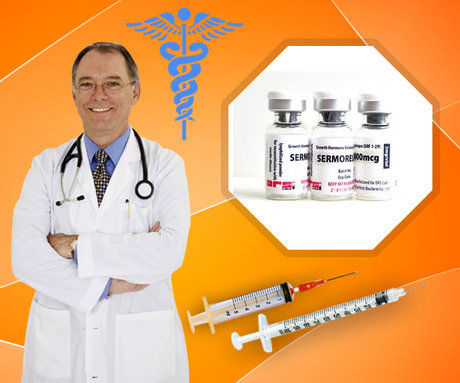 With low testosterone on the rise worldwide, more research and focus have been made on the health effects of low-T for men and even women. We’ve realized that low-T can cause serious problems, such as depression, as well as other issues such as erectile dysfunction, poor muscle mass leading to sarcopenia, fat gain, etc.
With low testosterone on the rise worldwide, more research and focus have been made on the health effects of low-T for men and even women. We’ve realized that low-T can cause serious problems, such as depression, as well as other issues such as erectile dysfunction, poor muscle mass leading to sarcopenia, fat gain, etc.
For women, it’s usually a low sex drive and painful sex. In addition, it’s been noted in multiple studies that men with low testosterone are more susceptible to COVID-19 and exhibit worse symptoms the lower their testosterone is. Scientific research shows us that low testosterone may be related to a joint disease: rheumatoid arthritis.
Low-T – A Sign of Arthritis to Come?
A recent study has concluded that men with lower levels of testosterone may be more likely to develop rheumatoid arthritis in the future. However, this is not definitive because the testosterone levels between the two groups were not that different, but enough to be significantly different in terms of statistics.
We know that arthritis is caused by inflammation in the joints, and testosterone has been shown to actually reduce inflammation in the body – for example, lung inflammation with asthma and the inflammation associated with COVID-19. Therefore, it does make sense that adequate testosterone levels would tend to keep inflammatory diseases, such as arthritis, at bay.
Previous research has shown that men with rheumatoid arthritis have lower testosterone levels than those without arthritis. Unfortunately, we do not know if the hormonal changes occurred before or after the arthritis developed.
To try and figure this out, Mitra Pikwer, MD, from Lund University in Sweden, decided to study men who were known to have rheumatoid arthritis from a health survey called the Malmo Preventive Medicine Program (MPMP).
The participants in the study had multiple tests performed, questionnaires, and blood samples drawn. From this data, Pikwer and researchers were able to get a good start on their research into low testosterone and how it relates to rheumatoid arthritis.
 What is Rheumatoid Arthritis?
What is Rheumatoid Arthritis?
Before we go any further, let's find out what rheumatoid arthritis is and how it compares to other types of arthritis. Rheumatoid is actually an autoimmune and inflammatory disease.
Autoimmune means that the patient’s immune system is attacking healthy cells in the body, specifically cells of the joints. This causes inflammation and pain in the joints.
The joints most affected are the hands, wrists, and knees. Ouch! With rheumatoid arthritis, the lining of the joint becomes inflamed, and this causes damage to the joint tissue.
This damage can become chronic, leading to chronic pain, lack of balance, and deformity of the joints. If rheumatoid arthritis is not treated, it can also affect other tissues, causing health problems in the heart, lungs, and eyes.
The symptoms of rheumatoid arthritis include pain or aches in multiple joints, joint stiffness, tenderness and swelling, weight loss, fatigue, fever, and weakness.
There is no known cause of rheumatoid arthritis, but it can be treated with medication and self-management strategies. The medications used are medications that slow down the extent of the disease and prevent deformities.
Could Hormone Levels Be Biomarkers of Future Arthritis?
A total of 278 men were involved in the scientific study led by Pikwer, who used the blood samples to find 104 men who developed arthritis and 174 men who matched controls, or men of the same age who did not develop the disease.
With these blood samples, Pikwer measured levels of testosterone, follicle-stimulating hormone (FSH), luteinizing hormone (LH), and sex hormone-binding globulin (SHBG). The goal here was to see if differences in the hormone levels between the health patients and the arthritic patients could be spotted years in advance before the arthritic patients were diagnosed.
 The time between giving a blood sample and diagnosing patients who developed rheumatoid arthritis varied from one to 28 years.
The time between giving a blood sample and diagnosing patients who developed rheumatoid arthritis varied from one to 28 years.
There is a protein that is produced by the immune system called RF (rheumatoid factor).
High levels of RF are associated with rheumatoid arthritis patients. Pikwer and colleagues also measured the rheumatoid factor status at the time of diagnosis of 83 men in the study who developed the disease.
Out of these men, 73% tested positive for the protein. This is another contentious factor in rheumatoid arthritis development because RF can be detected in healthy patients, and some people with rheumatoid have normal levels of it.
Low Testosterone Linked to Higher Odds of Developing Rheumatoid Arthritis
The study results show that lower levels of the sex hormone, testosterone, are linked to higher odds of developing rheumatoid arthritis, and more specifically, the RF-negative type.
The association was more apparent when other factors were accounted for that increase the risk of arthritis, such as smoking and obesity (Isn’t it crazy that there are some people who still smoke today?).
There were only slight differences in testosterone levels between men who developed rheumatoid arthritis and those who did not, though still statistically significant. The levels ranged from 20 nmol/L to 22 nmol/L.
Except for an even smaller study in Finland, this was the first study to explore hormone levels in men to see if they could be biomarkers for the development of rheumatoid arthritis.
Because the differences in testosterone in pre-rheumatoid arthritis men were only more apparent when the models were adjusted for other confounders, such as smoking or obesity, it is more complicated to use testosterone measurements to predict rheumatoid arthritis in a clinical setting.
 The researchers also stated, “Since this is the first major study of testosterone and related hormones in the preclinical phase of rheumatoid arthritis, our findings should be verified in other populations.”
The researchers also stated, “Since this is the first major study of testosterone and related hormones in the preclinical phase of rheumatoid arthritis, our findings should be verified in other populations.”
Verification of results is always something that should be welcome in scientific circles, and no surprise that the researchers would suggest that. The more research conducted, the better and more definitive results.
In conclusion, it would not be surprising if testosterone levels do genuinely have a link to rheumatoid arthritis and other inflammatory diseases. It has been noted before in the scientific literature that testosterone has an anti-inflammatory effect, such as with asthma and even COVID-19, as noted previously.
Continue to follow our health blog to stay updated on the latest hormone news!
References
Contact Us For A Fast And Professional Response

- Sermorelin — HGH Injections Versus Sermorelin and Testosterone Therapy Programs [Last Updated On: February 20th, 2025] [Originally Added On: September 20th, 2020]
- The scientific research benefits of testosterone treatment (TRT) [Last Updated On: September 5th, 2025] [Originally Added On: September 26th, 2020]
- Low-T Associated with Increased Risk of Atherosclerosis in Men with Type-2 Diabetes [Last Updated On: April 17th, 2025] [Originally Added On: October 20th, 2020]
- Health Changes Associated with Low Testosterone and Andropause [Last Updated On: June 15th, 2025] [Originally Added On: November 16th, 2020]
- Five Sports for Living Longer – Life Extension Through Sport [Last Updated On: March 16th, 2025] [Originally Added On: December 2nd, 2020]
- Covid-19 Mortality Risk Correlates With Low-T [Last Updated On: April 16th, 2025] [Originally Added On: December 17th, 2020]
- New Research Explores How Testosterone Influences Your Popular or Unpopular Opinions [Last Updated On: October 31st, 2025] [Originally Added On: February 22nd, 2021]
- Primary Versus Secondary Hypogonadism [Last Updated On: October 9th, 2025] [Originally Added On: March 15th, 2021]
- Testosterone Cypionate Information [Last Updated On: August 24th, 2025] [Originally Added On: May 5th, 2021]
- Testosterone Replacement Therapy May Help Cure Non-Alcoholic Fatty Liver Disease [Last Updated On: October 25th, 2025] [Originally Added On: June 5th, 2021]
- Hydraulic Fracturing: Another Environmental Pollutant That Affects Your Testosterone Levels [Last Updated On: October 13th, 2025] [Originally Added On: July 11th, 2021]
- Can Low Testosterone Be Cured? [Last Updated On: November 1st, 2025] [Originally Added On: September 5th, 2021]
- Low Testosterone (Low T) [Last Updated On: April 25th, 2025] [Originally Added On: September 7th, 2021]
- The (Surprising) Necessity for Estrogen in Men [Last Updated On: January 22nd, 2025] [Originally Added On: March 1st, 2022]
- Anti-Aging Benefits from Hormone Balance [Last Updated On: November 4th, 2025] [Originally Added On: March 22nd, 2022]
- Male Testosterone Levels Have Dropped by Half - Fact or Myth? [Last Updated On: August 11th, 2025] [Originally Added On: May 14th, 2022]
- Tlando is on the Market – Oral Testosterone Replacement Therapy [Last Updated On: November 8th, 2025] [Originally Added On: June 9th, 2022]
- Tlando Low-T Treatment - A Safe and Effective Pill for Testosterone Deficiency [Last Updated On: August 17th, 2025] [Originally Added On: June 25th, 2022]
- Fatigue and Lack of Sexual Interest: Could it be Male Menopause? [Last Updated On: January 25th, 2025] [Originally Added On: June 27th, 2022]
- The Power of Testosterone—Improving Memory in Diabetics [Last Updated On: August 16th, 2025] [Originally Added On: July 12th, 2022]
- Kyzatrex Achieves FDA Approval—A Brand New Oral Testosterone Treatment [Last Updated On: August 18th, 2025] [Originally Added On: August 13th, 2022]
- How Testosterone and Social Context Influence Behavior [Last Updated On: August 30th, 2025] [Originally Added On: December 11th, 2022]
















